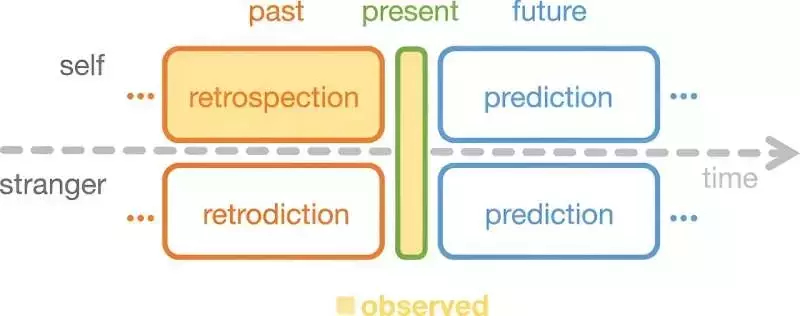Unraveling the Mysteries of the Past: Humans' Uncanny Ability to Infer What Came Before
Humans have an innate ability to make sense of the world around them, often relying on their powers of inference to piece together the past and anticipate the future. A groundbreaking study from Dartmouth College, published in Nature Communications, sheds light on this fascinating cognitive phenomenon, revealing that people are consistently better at guessing what happened before a given scene than they are at predicting what will happen next.Unlocking the Secrets of the Past: Humans' Uncanny Retrospective Abilities
Retrodiction: Piecing Together the Unseen
The study, led by Jeremy Manning, an associate professor of psychological and brain sciences at Dartmouth, found that participants were consistently better at guessing what had happened before a just-watched scene than they were at predicting what would happen next. This pattern held true even when the participants were presented with complex, character-driven narratives from television dramas, rather than simple sequences of numbers, images, or shapes.The researchers attribute this phenomenon to the way characters in the shows tended to talk more about their past experiences and future plans. Just as real people remember their prior experiences but not those in the future, fictional characters often reflect this asymmetry in their conversations, providing participants with more clues to work from when making inferences about the past.The Psychological Arrow of Time: Remembering the Past, Predicting the Future
This finding aligns with the concept of the "psychological arrow of time," a phenomenon that has been observed in prior research. The idea is that people have a better understanding of their own past than their future, as our memories only tell us about what has already occurred, not what is yet to come.The study's lead author, Xinming Xu, a Ph.D. student in the Department of Psychological and Brain Sciences at Dartmouth, explains that this asymmetry in knowledge can be transmitted to others, as people's own experiences of the past and future shape their ability to make inferences about the lives of fictional characters.Exploring the Conversational Landscape: A Deeper Look at How We Talk About Time
To further investigate this trend, the research team analyzed millions of dialogues in novels, movies, television shows, and other forms of media. Their findings revealed a consistent pattern: both fictional and real people tend to talk more about their pasts than their futures."Our results show that on average, people talk one-and-half-times more about the past than the future," says Manning. "And this seems to be a general trend in human conversation."This observation suggests that our ability to make inferences about the past may be rooted in the way we naturally communicate about our experiences, with a greater emphasis on recounting what has already happened rather than speculating about what is yet to come.Implications and Applications: Unlocking the Secrets of the Human Mind
The implications of this study extend beyond the realm of entertainment and storytelling. By understanding the cognitive biases and patterns that shape our ability to make inferences, researchers and practitioners in fields such as psychology, cognitive science, and even artificial intelligence can gain valuable insights into the workings of the human mind.These findings could inform the design of more intuitive and user-friendly interfaces, the development of more effective learning and training programs, and the creation of more realistic and engaging narratives in various media. As we continue to unravel the mysteries of the past, we may just unlock the keys to better understanding the present and shaping the future.

